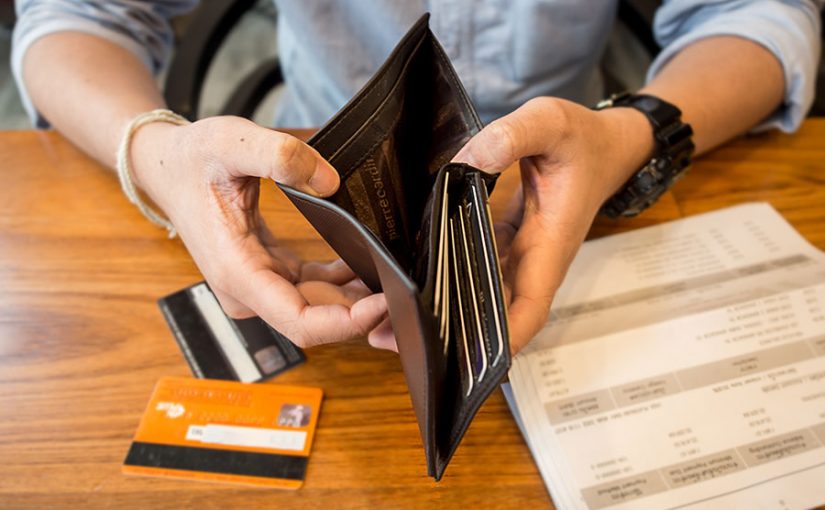Credit Cards: The Good, The Bad, and The Ugly

For some, credit cards cause grief and financial struggle. For others, credit cards help them in times of need or help them make large purchases. There are definitely some good, some bad, and some really ugly things about credit card ownership, and hopefully this guide will help you understand how to make them work for you while avoiding financial troubles.
The Good:
Building Credit: Credit cards can help establish a good credit score. Having an active credit card, paired with being responsible enough to make payments and eliminate balances will always look great in the eyes of creditors.
A high credit score can work in your favour in many different ways. You’ll have better negotiating power to get a lower interest rates on future loans, lower insurance rates and an easier time getting approved for a things such as a new car or home.
Rewards Programs: There are plenty of credit card companies competing with each other for your business. As a way to lure in new customers, they will provide perks such as travel rewards or cash back. And you should definitely take advantage of these rewards! Just make sure you understand annual fees associate with each card. Do your research and don’t immediately dismiss cards with higher annual fees. Instead, look at interest rates and consider your ability to pay off balances swiftly.In the end, ifIf you believe you can get more value from that card than you’re paying annually. Take advantage and pay the fee.
Rack up rewards by paying bills and making other purchases that you already have the money for. But remember the key word in this exchange: reward! If you’re paying hand over fist in interest rates and annual fees, the perks you receive aren’t rewards anymore, they’re purchases .
Ability to Make Big Purchases: One of the best things about having a credit card is having the ability to make big purchases from time to time. New furniture, car repairs, or vacations all become possible without needing immediate access to thousands of dollars in savings.
Understand how to properly use a credit card for big purchases, and make sure it makes sense. Consider that $2,000 paid off in 4 months at 19.99% costs $135 in interest, but the same purchase paid off in 2 years costs about $800 in interest. Paying 30% of your total purchase in interest doesn’t make financial sense. Need to make a big purchase but think you’ll need more time to pay it off? Consider a loan, line of credit, or avoid interest entirely buy saving up, taking advantage of a layaway program, or keep your eyes open for no interest/no payment deals.
The Bad:
Carrying a High Balance: let’s be clear, there is no better balance to carry on a credit card than $0. However, if you find yourself carrying a balance on your card for longer than you’ve anticipated, it’s important to understand what’s happening behind the scenes. Carrying a high balance on your credit card affects you negatively in the eyes of the Credit Bureau, and will impact your credit limit available to you in the future.
Avoid this by keeping a close eye on your balance so you’ll always know what purchases will put you outside of your comfort zone. Being proactive will allow you to cut back on the things you don’t necessarily need, and going into debt to have those things.
Only ever making minimum payments: Only making minimum payments could end up costing you thousands of dollars before your debt is paid off. And that’s only if you don’t make any more purchases or put yourself further into debt.
Let’s put it into perspective: If you had $10,000 in debt on your credit card, and had a minimum payment of 3% per month, while your monthly payment would shrink as your debt shrinks, you’ll be stuck making payments, not for months, but years! Not only that, but you’ll be paying thousands in interest rates over the course of that time.
Only ever making your minimum payments is a serious trap that you should avoid at all costs .
And the Ugly:
Credit Card Debt is Bad Debt: You’ll hear people discuss good debt and bad debt. Let’s be clear, CREDIT CARD DEBT IS BAD DEBT. I repeat, credit card debt is bad!
Unlike a mortgage or a car loan, which typically have interest rates between 1-4%, credit cards carry interest rates around 20%. That means for every $100 left on a credit card, you owe an extra $20 per year. Credit cards also have the ability to make a severe impact on your credit score. Due to the high interest, and the potential damage a balance can have on your credit score, a credit card should be paid off in full whenever possible.
Missing a Payment: Never miss a payment on your credit card.If you find yourself in a sticky situation and find you can’t pay off your credit card completely, at the bare minimum, make sure you’re at least making your minimum payments.
Getting in the habit of only ever making minimum payments may end up costing you more, and back you into a difficult corner to get out of, but missing a payment can turn that corner into a deep hole. Missing a payment can cost you upwards of 100 points on your credit score.
It’s simple, if you can’t afford to make the payments, don’t make the purchase. If you have a hard time properly planning how you’re going to use your credit card and make the payments to cover the balance, perhaps you might want to reconsider having one, or seek professional help in managing your finances.
